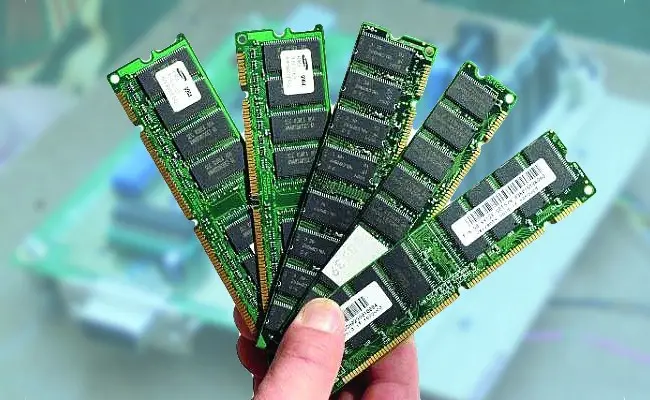Is your website experiencing such issues as slow speeds, lagging responsiveness or inconsistent availability? Adding additional virtual RAM can help with these problems and improve the performance of the page and the server it runs on. This is especially beneficial for businesses that are experiencing substantial growth or are migrating from their current websites from shared hosting to dedicated or virtual private servers. In cases like this, storage VPS plans are a great way to increase not only memory capacity, but also CPU and bandwidth, which ensures that your server gets all the resources it might need.

How to determine the right amount you need
When it comes to RAM, there cannot be “too much” of it. But understanding your page’s storage requirements can help invest in the things that will make the site and other operations effective and efficient. Users should take into consideration the past and current growth and accordingly plan for the future. Although it might take some time, some methods can help decide which level of storage VPS plan to purchase. These approaches are:
- Measure past and current RAM use. Several metrics can assist when evaluating space needs. It can be measured with such things as:
- Traffic. The number of website visitors is an essential
measurement that affects the amount of memory you need. This includes the
number of hits, unique visits, and total page views.
- Content Management Systems. An upgrade is needed if you’re using such content management systems as WordPress, Joomla, Drupal. Take into account the number of plugins and modules installed and used.
- Operating System. Whether you use a Windows- or Linux-based server, the version and the year of the OS is the baseline for memory needs. Choose an appropriate storage VPS plan to meet them.
- Site Format. Scripting languages, SQL databases (and their quantity and size) impact RAM requirements.
- Control Panels. Some tend to use more resources.
- Caching. Browsers and proxy servers can be used to cache some segments of the website and such static content like images. They can free up additional memory, but it might not be enough.
- Other Applications. Additional RAM is required for spam filters, firewalls, email clients, and antivirus software, so choose a storage VPS accordingly.
- Use monitoring tools. Some system programs can help users monitor several operating metrics that are crucial for the overall performance. There are certain features that, for example, measure “committed bytes” and their usage. They represent the total amount of memory needed to run other OS components and applications. By using these tools, you can test which programs and scenarios require additional RAM and how much.
These methods will help to determine the approximate amount of dedicated virtual memory needed to ensure the optimal performance of the servers.
Why adding RAM is beneficial?
An appropriate storage VPS plan can significantly boost your virtual memory and other crucial things as bandwidth and CPU. This leads to several improvements:
- Increased speed. When the server lacks RAM, it affects system speed. Demands for it fluctuate because of the OS, applications, traffic and at higher utilization rates, users experience slowed responsiveness. Additional memory prevents slowdowns by providing needed resources.
- Better performance. A slow website is quickly abandoned by visitors. With the right amount of RAM, any traffic will be easily handled and the pages won‘t take several seconds to load.
- Service consistency. Virtual memory is available to your servers whenever there is a need for it. It ensures that even if multiple applications run simultaneously, everything will work and be accessed at the same speed at all times.
- Application responsiveness. By supplying sufficient memory through storage VPS plans, the most essential software will be working properly and won‘t lad when you need them the most.
Every available resource should be used to keep your website and servers running smoothly. Additional RAM ensures just that and more.
By measuring the past, current and anticipated traffic, you can determine just how much more dedicated memory the system needs. Owners of growing businesses should utilize every available resource to keep their servers running smoothly. It will greatly help not only in speeding up page loading times and various other processes, but also the growth of the user base and the success of the company.
[Image via: Google Images]
